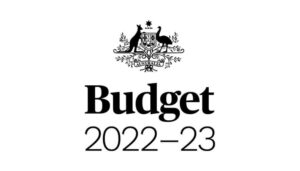
Small Business Skills and Training Boost – Draft Legislation
The Federal Government has recently released Exposure Draft Legislation for the Small Business Skills and Training Boost. The Boost is a temporary measure to incentivise small businesses to upskill their employees or train new employees. Under the Boost, businesses will be able to claim a 120% deduction for eligible expenditure.
* Please note, that the Boost has only been released as Exposure Draft Legislation and will not be law until the relevant legislation has been passed by Parliament. We will keep you updated on the status of the proposed measures.
Who is eligible?
Businesses with an aggregated turnover of less than $50 million are eligible for the bonus deduction.
As discussed in more detail below, sole traders, partners in a partnership and independent contractors are not eligible for the bonus deduction.
What can be claimed?
The bonus deduction applies to expenditure incurred for in-person or online training for your employees. The training must be provided by a registered training organisation. The services provided must be within the scope of the registered provider’s registration (which can be checked at www.training.gov.au).
The training cannot be provided by an associate of the employer. In-house training or on-the-job training is also not eligible.
Only the amount charged by the registered training organisation is eligible for the bonus deduction. If there are incidental costs to the training (eg. books or equipment), it will only be eligible for the bonus deduction if the training provider charges your business for these.
There is no cap on the amount claimed.
When does it apply?
It applies to expenditure incurred from 7:30pm on 29 March 2022 to 30 June 2024.
Any expenditure incurred between 29 March 2022 and 30 June 2022 will be claimed in the 2023 tax return.
What is excluded?
Sole traders, partners, independent contractors
As the draft legislation currently stands, the bonus deduction is only available for spending on external training for employees. The explanatory memorandum for the draft legislation specifically states that the bonus deduction is not available for sole traders, partners in a partnership and independent contractors (as they are not “employees” of the business).
Incidental costs
As noted above, incidental costs (like books or equipment) cannot be claimed unless the registered trainer charges for these.
Action to take
- Review all expenditure incurred from 29 March 2022 to 30 June 2022 to identify whether your business has incurred any costs eligible for the bonus deduction. Document these costs and have them ready for your 2023 tax return. If you are one of our business clients, please feel free to email the invoices for these costs through to us and we will retain these on file for your 2023 tax return.
- Setup a separate expense account in your chart of accounts to track eligible training expenses for the 2023 and 2024 year (to make it easier to identify and claim at year end).
- For all eligible expenditure, ensure you have an appropriate invoice from the registered training organisation (and that the services provided come within their scope of their registration). If you are using accounting software like Xero, you can attach these invoices to the relevant expense entry (making it easier at year end for your accountant to review the eligibility of the expense).
- For all eligible expenditure, ensure it has been incurred for employees (ie. that the relevant employee is recorded on the payroll of the business and that appropriate payroll data has been lodged via Single Touch Payroll for the employee).
- Review your current training programs for your staff and consider whether additional training is required. If so, ensure the training is undertaken prior to 30 June 2024 to be eligible to the bonus deduction.
DISCLAIMER: The information in this article is general in nature and is not a substitute for professional advice. Accordingly, neither TJN Accountants nor any member or employee of TJN Accountants accepts any responsibility for any loss, however caused, as a result of reliance on this general information. We recommend that our formal advice be sought before acting in any of the areas. The article is issued as a helpful guide to clients and for their private information. Therefore it should be regarded as confidential and not be made available to any person without our consent.

Jeanette has over 20 years experience as an accountant in public practice. She is a Chartered Accountant, registered tax agent and accredited SMSF Association advisor. When she is not helping business owners grow their empires, you will likely find her out running on the trails or at the gym. Book in to see Jeanette today.




